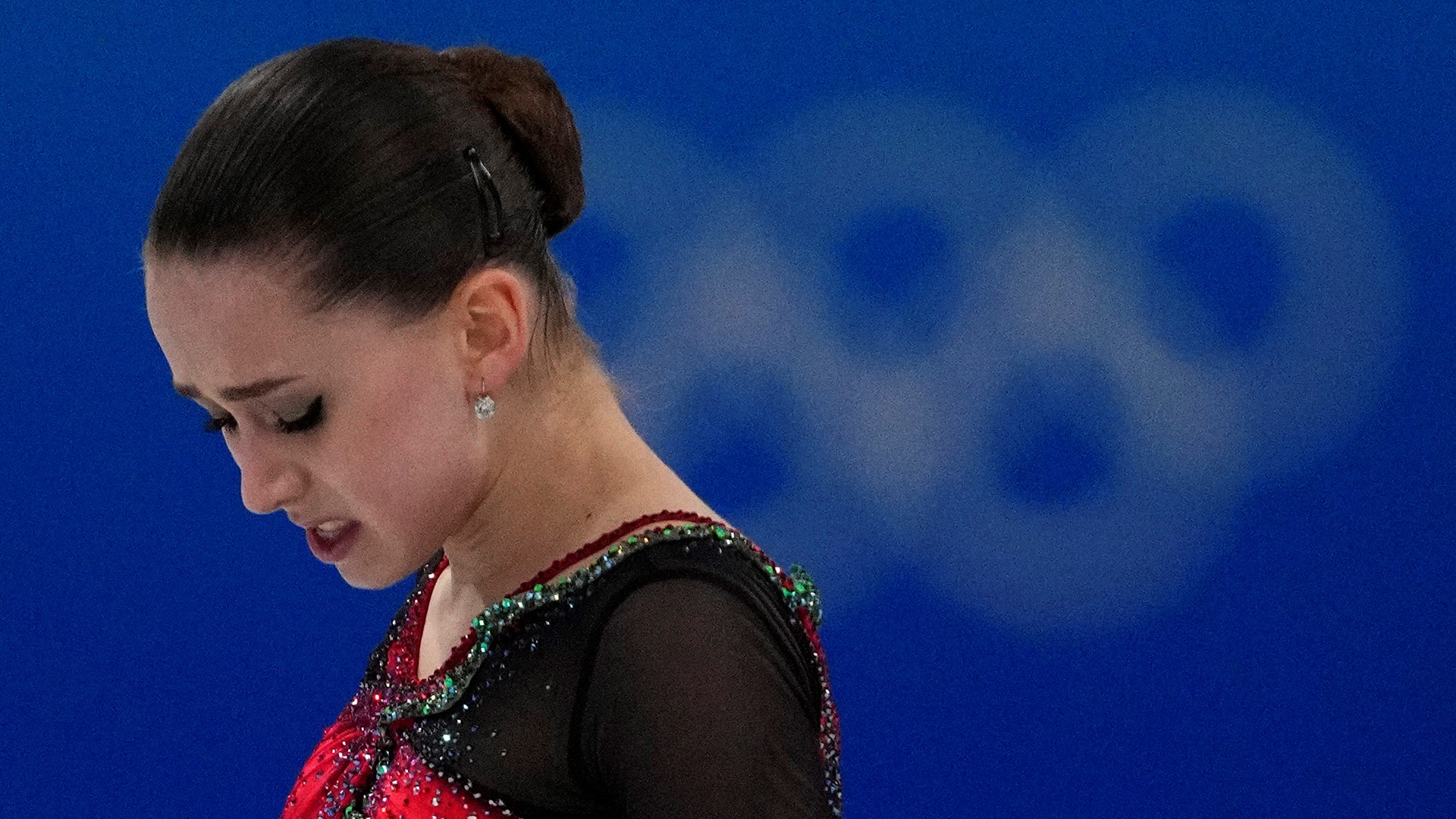BEIJING, China — International Olympic Committee president Thomas Bach has criticized Russian figure skater Kamila Valieva's entourage for their “tremendous coldness” toward the 15-year-old skater after her mistake-filled free skate at the Beijing Olympics.
Bach says it was “chilling” to see on television. Valieva, who has been at the center of a controversy over a positive doping test, finished fourth overall despite placing first in the women's short program earlier in the week.
“When I afterwards saw how she was received by her closest entourage, with such, what appeared to be a tremendous coldness, it was chilling to see this,” he said at a news conference Friday. “Rather than giving her comfort, rather than to try to help her, you could feel this chilling atmosphere, this distance.”
The IOC president did not name Valieva’s coach, Eteri Tutberidze, who was seen on camera telling a visibly upset Valieva “Why did you let it go? Why did you stop fighting?”
Tutberidze and other members of Valieva’s entourage will be investigated over the teenager’s positive test for a heart medication ahead of the Olympics.
Bach says the pressure on Valieva was “beyond my imagination.”
The 15-year-old phenom was heavily favored to win gold but is headed home with nothing from the women’s program and a looming investigation into her positive drug test.
Valieva was shaky on an opening quad salchow, then stepped out on a triple axel and fell altogether on a quad toe loop-triple toe loop combination. Valieva fell again on her other quad toe loop, keeping her from completing that combination, and spun out on another jump late in the program — though by that point, her fate was sealed.
She did not speak to reporters after a performance.
Anna Shcherbakova of Russia took gold and teammate Alexandra Trusova took silver. Kaori Sakamoto of Japan won bronze.
Valieva had tested positive for a banned heart medication at the Russian championships in December, but the result was not revealed until last week, shortly after she helped to win a team gold medal that is now also in doubt.
She was cleared to compete earlier this week by the Court of Arbitration for Sport, which ruled that she had protected status as a minor and would suffer “irreparable harm” if she was not allowed to perform. The court did not rule on the full scope of the case, though, leaving that to anti-doping investigators in the future.
Valieva has claimed the drug triggering her positive, trimetazidine, entered her system by accident. But the World Anti-Doping Agency filed a brief stating that two other substances she acknowledged taking, L-carnitine and Hypoxen — though both legal — undercut the argument that a banned substance could have been ingested in error.
Travis Pittman contributed to this report.

